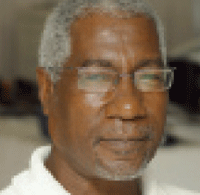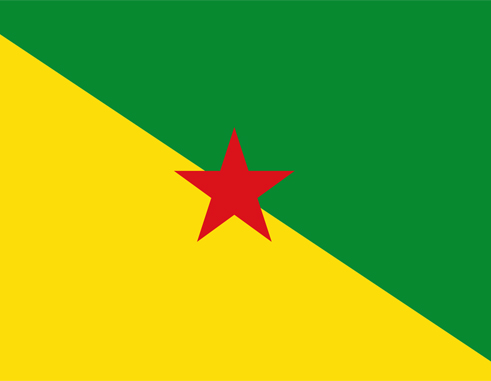
THERE’S so much Saint Lucians need to know about the long and deep historical connection between Saint Lucia and French Guiana — starting with its name and place.
‘Cayenne’, as we refer to the whole country, is only the name of the capital of the vast gold-and diamond mineral-rich French colony in South America. It’s actually several times quite larger than metropolitan France, where it’s best known as home to the European Space Agency (ESA) earth space station, from where Europe’s rockets are launched into global orbit.
The place we call ‘Cayenne’ is also mistakenly called ‘Kourou’ by the French, as that’s where the ESA earth station is located. It’s formal name, however, is French Guiana and it’s one of the three mineral rich territories belonging to the Guiana Shield in South America. The other two are Guyana (formerly British Guiana) and Suriname (formerly Dutch Guiana). The three Guianas originally belonged to Britain, France and Holland and border each other, alongside Brazil and Venezuela. But while the other two are independent nations, French Guiana is still considered owned and ruled by Paris, as with its French Antillean islands of Martinique and Guadeloupe, located within the Caribbean island chain.
Saint Lucia’s link with the place we still largely refer to as ‘Cayenne’ goes all the way back to 1832, when Saint Lucians first went there on the basis of an agreement between Britain and France. Most went to dig for gold, but Saint Lucians so populated the vast South American hinterland that, 183 years later, there’s no aspect of life in all of that vast territory that does not feature someone important who’s of direct and living Saint Lucian familial heritage. Most mayors of Cayenne (the capital) have been of either Saint Lucian parentage or linkage. Saint Lucian descendants figure in politics and commerce, forestry and mining – everything and everywhere.
Entire communities in ‘Cayenne’ were founded by or are largely populated by Saint Lucians. One hinterland gold-digging community called Sael is considered by some in that distant but gold-rich northern territory as ‘a piece of Saint Lucia in Guyane’. Another community called Matoury is rich with fertile Saint Lucian roots. Indeed, you can’t go anywhere in all of French Guiana without finding someone with Saint Lucian roots. You’ll even find born-Saint Lucians who have migrated there within the past fifty years with entire families, as well as those born there who grew-up in Saint Lucia and eventually returned to the land of their birth.
But with all that, Saint Lucians in French Guiana still feel ‘less Saint Lucian than Saint Lucians’, as one friend I grew up with in Faux-a-Chaux told me during one of my three trips there to date. Each Saint Lucian you meet will tell you he or she isn’t sufficiently catered for in Saint Lucia’s outreach to the Diaspora. Yes, Saint Lucia has official representation in Fort de France, Martinique, with responsibility also for Guadeloupe and French Guiana. But those needing help to iron-out their immigration status or renewing long-expired passports will tell you they have no one and nowhere to go to get it done in Cayenne.
On my two visits there with Prime Minister Anthony during his first two administrations (1997-2006), the Saint Lucia delegations met and addressed full houses of Saint Lucians and relatives at a spacious atrium in Cayenne, where they laid out their problems in full. Foreign Affairs Ministers George Odlum and Petrus Compton, Consuls General Cass Elias and Keats Compton, plus others, have, at different times, all promised to get the Ministry of Foreign Affairs or the Saint Lucia Government to configure a French Guiana element in its outreach to representation of Saint Lucians abroad. Indeed, there are more Saint Lucians in French Guiana than in some of the global capitals where Saint Lucia has full diplomatic representation. Hence the feeling of those in French Guiana, that they’re ‘less Saint Lucian’.
But their problems are quite real. There are age-old Saint Lucians I met who have given-up on dreaming of ever returning home, because they either ‘never had papers’ or their ‘papers expired long, long ago’. Most are afraid to declare their ‘paperless’ status to the French authorities for fear of being prosecuted or somehow bureaucratically punished, even deported. They so fear the French State machinery they prefer to remain ‘paperless and homeless’.
Then there’s the travel factor. To get to Saint Lucia, those wishing to visit families must transit via Martinique. No direct flights exist and the French have been accused by those who’ve tried to arrange them of ‘not saying no, but not saying yes either.’ Most who do travel shudder at having to pay more for going through Martinique to Saint Lucia, but admit they would make more frequent use of a direct flight. But here again, to fly, most who don’t have ‘papers’ but do have the means will need that home-based service in Cayenne itself – a Saint Lucia office that would be open from 8:00 a.m to 4:00 p.m (Saint Lucian working hours).
The situation facing Saint Lucians and persons of Saint Lucian heritage in the vast land we still call ‘Cayenne’ needs special attention from Castries. The absence of actual official diplomatic representation in Cayenne has not worked for the thousands of Saint Lucians needing direct attention. Everything points to the need for direct Saint Lucian representation there to attend to the needs and problems affecting Saint Lucians and their families in that part of the world. They are outside the Caribbean island chain, located far away on the north-eastern shoulder of South America, feeling like in the middle of nowhere.
Historically, different business persons in Cayenne of Saint Lucian extract have offered their services as ‘Honorary Consul without pay.’ But while that sounds good, it’s never worked well, as unpaid volunteers work at their own pace and will – and never be against their own interests. Saint Lucians in French Guiana are in fact clamouring for a paid employee of the Government of Saint Lucia, responsible to the Ministry of Foreign Affairs, to be posted in Cayenne to tend to their needs. It could be a Saint Lucian there or a suitably able official dispatched from here. It doesn’t matter where the person comes from, just that he or she has the zeal and ability to do what it will take to serve the interests of Saint Lucians in a vast and distant land where some 40% of the native inhabitants are said to be able to trace Saint Lucian lineage.
Like in Martinique, there exists various groups of ‘St. Lucia Associations’, each pursuing the same goal: ‘To take care of the interests of Saint Lucians in Guyane.’ The basis exists – as always – for Saint Lucia to reach out to her sons and daughters, nieces and nephews, grandparents and grandchildren in that part of the world. Indeed, they are part of the Saint Lucian Diaspora and should be treated as such.
It’s a new year in a still new century. After 183 years, it is therefore absolutely necessary that Saint Lucia does what needs to be done to make all Saint Lucians in French Guiana and ‘Where-so-ever we may roam’, always feel loved enough at home to ‘Love oh love, our island home.’















Your article raises some interesting points and more could be done to assist in an administrative manner, but I have to question this:
“Most who do travel shudder at having to pay more for going through Martinique to Saint Lucia, but admit they would make more frequent use of a direct flight. But here again, to fly, most who don’t have ‘papers’.
International travel isn’t a free service Earl. In an ideal world people could hop on a plane for nothing and go wherever they want. If a bright person thought money could be made operating a route, then it would have been done by now – that it hasn’t shows there isn’t a commercial angle for it.
This just screams of “something must be done”. Why don’t you start Earl Air?